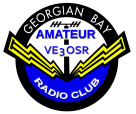2020-01-27, 11:54:52
Slump? On HF the bands are always very busy during contest weekends. The membership of one group I belong to, the Straight Key Century Club (SKCC) has grown tremendously and now has over 20,000 members. And that's for Morse Code. The death of CW/Morse has been grossly exaggerated for years.
But I agree that the 2-meter, 70-cm bands have declined in activity - a lot! Repeaters that once were busy have fallen silent. Cellphones and Internet chat have made these bands less attractive, especially to young people. I believe that making the ham exams easier to pass creates a pool of licensed people who may have only a casual and fleeting interest in the hobby.
Before I was licensed, applicants had to sit in front of an examiner and demonstrate a thorough understanding of radio technology. When I was a child in the UK in the 1950s and 1960s ham equipment was not available. Amateurs had to convert WW2 surplus military equipment (e.g. the famous No 19 set that was also used by the Canadian military) for ham use. You had to be really dedicated to the hobby back then.
Maybe there is a case for creating a new class of license that only tests knowledge of the rules and regulations, instead of the technology. It would be applicable for those who just like to rag-chew on a repeater or who enjoy using RF to access Internet-based communications like DMR. That might expand participants in the hobby and - who knows - some of them might develop an interest in learning more about radio technology itself.
IMHO over reliance on the Internet will backfire someday. The Internet will be one of the first victims in any future global conflict. It is just too vulnerable. A deep understanding of RF propagation and how to use it will become very valuable then. So let's reinforce radio experimentation and skills development so that "when all else fails there's ham radio".
But I agree that the 2-meter, 70-cm bands have declined in activity - a lot! Repeaters that once were busy have fallen silent. Cellphones and Internet chat have made these bands less attractive, especially to young people. I believe that making the ham exams easier to pass creates a pool of licensed people who may have only a casual and fleeting interest in the hobby.
Before I was licensed, applicants had to sit in front of an examiner and demonstrate a thorough understanding of radio technology. When I was a child in the UK in the 1950s and 1960s ham equipment was not available. Amateurs had to convert WW2 surplus military equipment (e.g. the famous No 19 set that was also used by the Canadian military) for ham use. You had to be really dedicated to the hobby back then.
Maybe there is a case for creating a new class of license that only tests knowledge of the rules and regulations, instead of the technology. It would be applicable for those who just like to rag-chew on a repeater or who enjoy using RF to access Internet-based communications like DMR. That might expand participants in the hobby and - who knows - some of them might develop an interest in learning more about radio technology itself.
IMHO over reliance on the Internet will backfire someday. The Internet will be one of the first victims in any future global conflict. It is just too vulnerable. A deep understanding of RF propagation and how to use it will become very valuable then. So let's reinforce radio experimentation and skills development so that "when all else fails there's ham radio".




